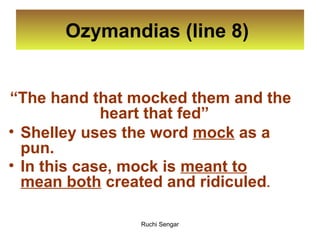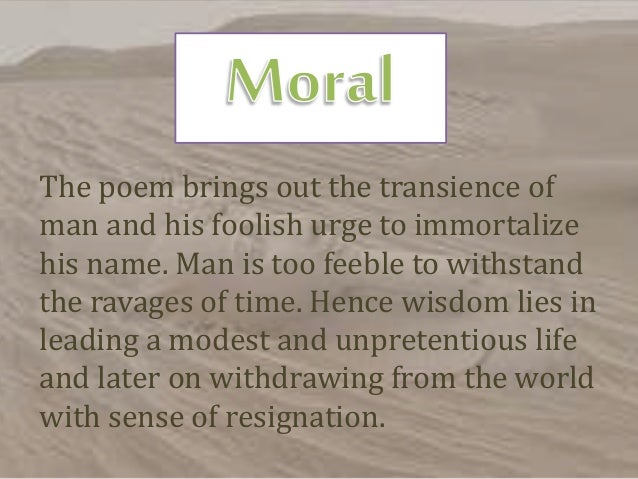

In Percy Bysshe Shelley’s “Ozymandias,” the narrator encounters a traveller from an antique land who relates the story of a sculptural masterpiece that was once erected in the desert sands. The poem also alludes to the cyclical nature of history, where empires rise and fall and power changes hands from one generation to the next, a reflection of humanity’s eternal quest for permanence and stability in a world forever in flux. The poem functions as a symbol of the ephemeral nature of human authority, signifying that even the most illustrious and grandiose of realms shall ultimately transmute into mere debris and recollections. In spite of his immeasurable wealth and power, the king and his empire eventually succumbed to decay and obscurity, much like the statue in Shelley’s poem, found in a desolate wasteland, shattered and broken. The reign of Ramesses II, situated in the 13th century BCE, was marked by his conquests in warfare, his magnificent architectural feats, and his extensive realm stretching from the Mediterranean Sea to the Nile delta. The historical origins of Percy Bysshe Shelley’s poem “Ozymandias” lie within the annals of ancient Egyptian civilization and the ubiquitous presence of one of its paramount rulers, Ramesses II, who was referred to as Ozymandias in Greek culture. A witness to this eternal truth, the speaker of the poem testifies to the transience of earthly authority and the utter futility of human ambition as he comes upon the broken pieces of a once-great statue of the ancient Egyptian ruler Ramesses II. Shelley expertly portrays the idea that even the greatest of civilizations will eventually fall to ruin by the use of florid and ornate language, leaving behind only relics of their past glory to be remembered by future generations. This poem is a profound reflection on the transience of human strength and the certainty of death and forgetfulness.

How does the author create irony here? What specific words does he use that make the poem particularly ironic? Be sure to tell me how the words you choose answer this question.Percy Bysshe Shelley, one of the greatest British poets of the nineteenth century, wrote the epic poem “Ozymandias.” It was first published under the pen name “Gilrastes” in 1818 in The Examiner of London.Trunkless: In this case, a body lacking a torso.A couple of difficult words before we start:.Verbal Irony: Saying one thing and meaning another.Situational Irony: The outcome of a situation drastically upsets readers’ expectations.Dramatic irony: The reader knows something the characters don’t.Irony occurs when "a discrepancy exists between two levels of meaning and experience.".If the work contains literary allusions, how do those allusions function within the confines of the poem?.Is this work internally consistent? How does it maintain that consistency?.What are some of the tensions in this work (between ideas, between forces, between people…)? How do the things discussed above (rhyme, sound patterns, imagery, etc) create, then heighten or lessen those tensions?.How do individual word choices, sound patterns, and other literary devices combine to create this effect?.What are the effects produced by this work? (Formalists differentiate between effects and feelings.) For example, they might be drawn to the way Robert Browning cleverly unfolds the story of "My Last Duchess" or the use of irony in "Ozymandias.".Formalism began in the 1920's as a reaction against the current literary criticism that Formalists thought focused only on the life of the author and concerns outside of the literature itself.are very concerned with sound, form, word choice, literary effects, and "close reading." ("Close reading" is a detailed analysis of the literary effects produced by a work without referring to outside influences.).

are mostly unconcerned about historical/cultural context and biographical information about the author.“Ozymandias” and Irony Formalist CriticismĬritical "Lens:" Formalism Formalism assumes that all that is needed in order to interpret a poem or a work of literature is contained within the poem itself.


 0 kommentar(er)
0 kommentar(er)
